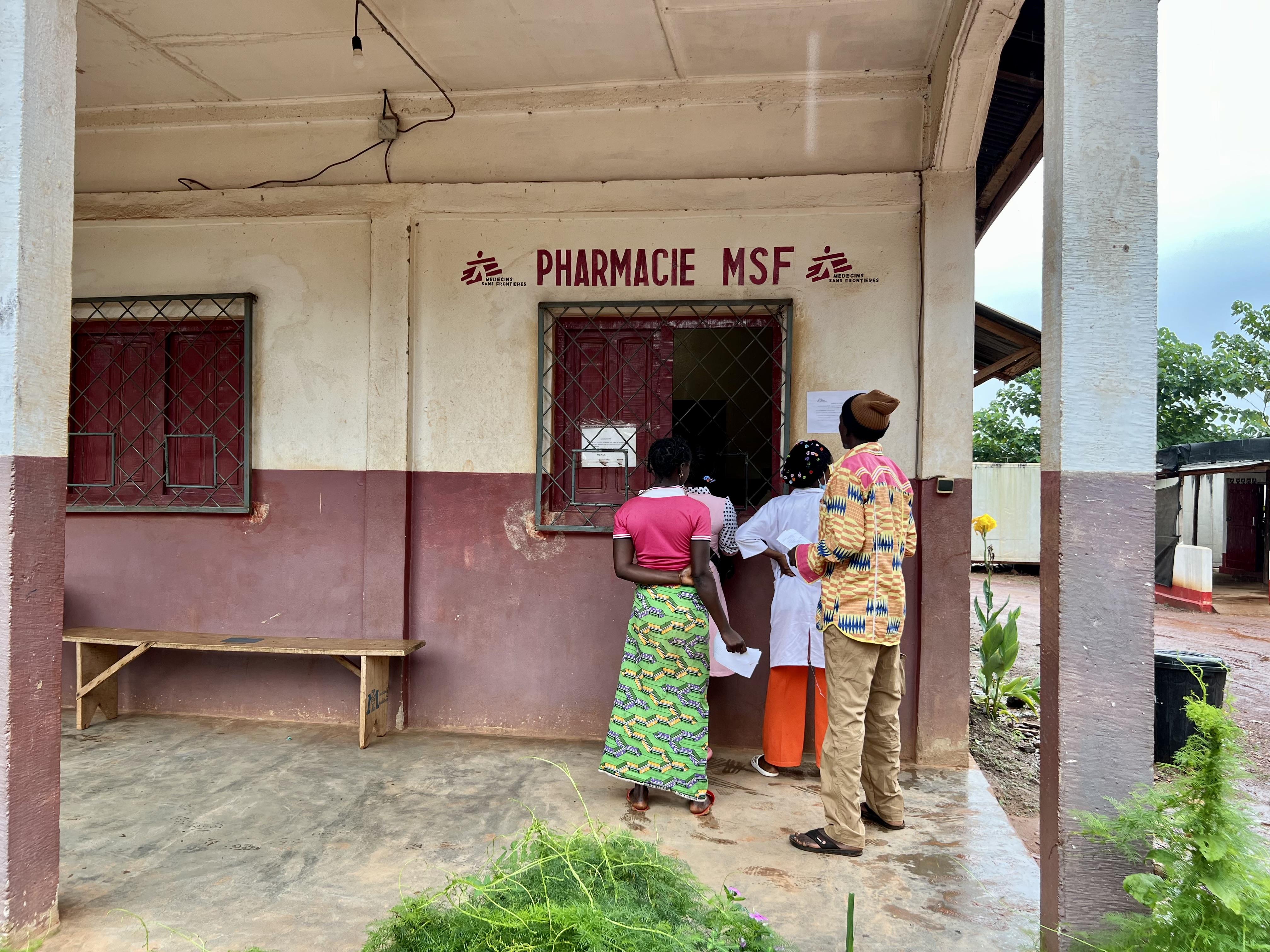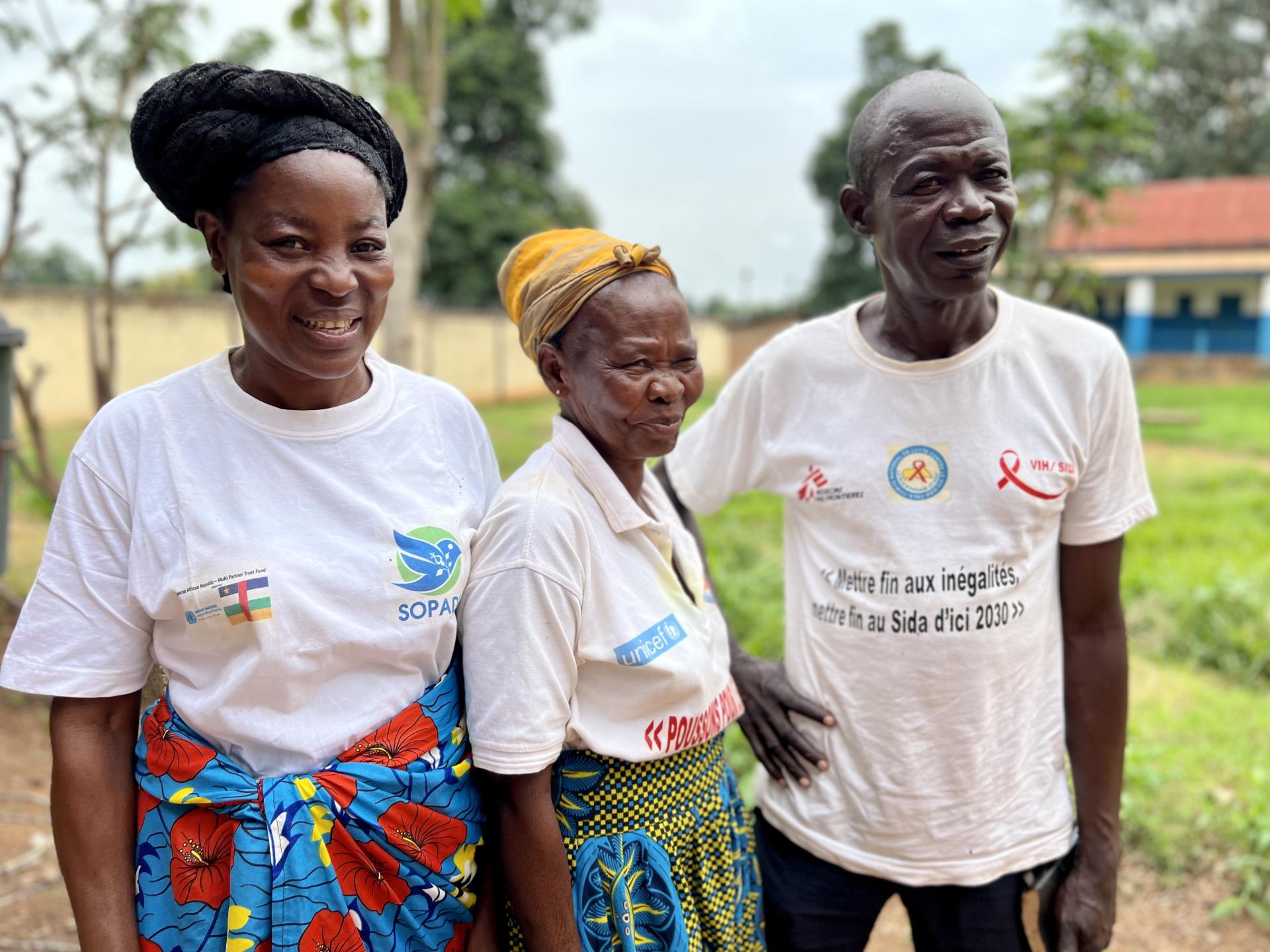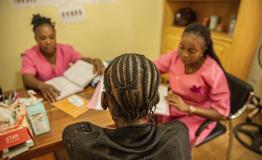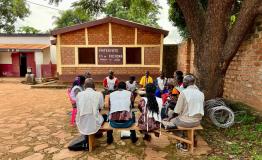To facilitate HIV patients' access to treatment, MSF has set up community ARV access group (known as CAGs) in CAR. Thanks to this system, more and more patients, whose condition is stable, gather, support each other, and fight the disease from both a medical and a social perspective. Mutual support in these groups reinforces acceptance in a country where the stigma towards HIV-positive people is still very strong.
HIV/AIDS remains one of the main causes of death in the Central African Republic (CAR). With around 83,000 people affected by HIV in the country (source: UNAIDS), the epidemic remains an ongoing emergency and represents a major medical and humanitarian challenge. To combat this scourge, in support of the Ministry of Health, MSF continues to integrate HIV/AIDS into its activities throughout the country.
This is the case in Bambari, in the center of the country. In this province, as in all the others, the population has had to contend with extreme poverty, recurrent violence and a drastic shortage of health facilities and healthcare personnel. There are also persistent problems with the supply of antiretroviral drugs, and numerous barriers to early detection and medical treatment. Many people living with HIV must make long and dangerous journeys to find a clinic providing these services.
Find a reassuring space and understand the importance of treatment
To facilitate patients' access to treatment, MSF has set up community ARV access groups known as Community Antiretroviral Treatment Groups (CAGs) in CAR. Thanks to this system, HIV-positive patients, whose condition is stable, gather and designate one of them to go and collect the group's medicines for the coming months: this reduces transport costs and the time spent in hospital. This system also helps patients to take a more active role in their treatment. Mutual support in these groups reinforces acceptance in a country where the stigma towards HIV-positive people is still very strong.
"In our environment, many patients who test positive for HIV refuse treatment for fear of being stigmatized, shares Fulgence Manehou, MSF focal point for antiretroviral treatment community support groups in Bambari. They then represent imminent risks for their communities. From this point of view, community groups are very important: they enable people living with HIV to come together voluntarily, choose a leader, find a reassuring space and understand the importance of treatment through the sharing of experience."
Furthermore, organized patient groups, particularly Community Antiretroviral Treatment Groups (CAGs) in the Central African Republic (CAR), play a crucial role in ensuring accountability within the health system. During conflicts, CAGs enhance access to Antiretroviral Therapy (ART) by securing a consistent six-month supply, preventing treatment interruptions. Collaboration between CAG leaders and HIV clinic staff is essential for the uninterrupted provision of ART to group members, sustaining treatment and fostering hope for People Living with HIV, especially those who have experienced the loss of loved ones.

Fostering Unity and Resilience: The Bambari Community Antiretroviral Treatment Groups (CAG) Triumph Amidst HIV Stigma
In the midst of societal stigmatization faced by individuals living with HIV, the Bambari Community Antiretroviral Treatment Groups (CAG), stand out as a beacon of unity and support.
"Before the HIV community groups (CAG) were set up, I was really less comfortable when I came to collect my treatment alone, every month, says Martine Kembi, president of a CAG and director of the Central African Network of People Living with HIV. However, since the CAG was set up by MSF in 2019, everything has been easier. What I like is mutual support. You see people arrive in a bad way, but each member ends up back in shape because we all support each other. We have to take away the shame and the stigma."
The CAG system in Bambari alone is showing very good results with over 80% of a cohort of 172 patients having their viral load suppressed thanks to regular treatment monitoring. By 2022, almost 10,000 people in the Central African Republic will have had access to care and antiretroviral treatment thanks to MSF teams.
Community Antiretroviral Treatment Groups (CAGs) play a vital role by enhancing community engagement, raising awareness about HIV, reducing stigma, and garnering increased support for People Living with HIV. Through regular community meetings, CAGs foster peer support, addressing crucial aspects like adherence, providing support for the sick and facilitating transportation.


